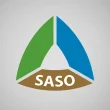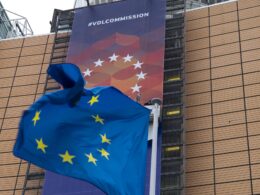The Greenhouse Gas Protocol (GHG Protocol) has launched a 60-day public consultation period for two major initiatives. The first seeks feedback on proposed updates to the Scope 2 Guidance (2015), which governs how companies account for emissions from purchased electricity. The second consultation focuses on developing consequential accounting methods for estimating avoided emissions from electricity-sector actions.
These consultations mark the first phase in a broader revision of the GHG Protocol’s corporate standards and guidance. The process aims to ensure that greenhouse gas inventories remain accurate, consistent, and relevant as global energy systems and reporting requirements continue to evolve.
Approved by the GHG Protocol Independent Standards Board (ISB), the proposed revisions to the Scope 2 Guidance (2015) are the result of nearly three years of technical development and consultation with experts from business, academia, and civil society. The guidance, published a decade ago, has become the primary global framework for corporate electricity emissions reporting and is widely used in mandatory disclosure regimes such as IFRS S2, the EU’s CSRD/ESRS, and California’s SB 253.
Alexander Bassen, Chair of the Independent Standards Board, said: “A decade after publishing the Scope 2 standard, an update is both timely and necessary. This revision is an opportunity to make improvements based on how the standard has been applied in practice and how power systems have become cleaner, more complex, and more interconnected than ever before. Public input gathered over the next two months will play a major role in shaping the next version.”
The updated Scope 2 guidance retains the dual location-based and market-based reporting methods while adding new measures to enhance transparency and accuracy. A major change introduces hourly matching and deliverability requirements for market-based reporting, aligning emissions claims more closely with the time and place of electricity consumption. The revisions also propose flexible mechanisms—such as load profiles, exemption thresholds, legacy clauses, and phased implementation—to support organisations with varying capacities and data access.
Alongside the Scope 2 update, the GHG Protocol is inviting input on consequential accounting methods. These aim to quantify the broader system-wide impacts of corporate actions such as renewable energy investments or procurement, beyond an organisation’s operational boundaries. The GHG Protocol emphasised that this approach would keep inventory emissions and system-wide impacts reported separately to preserve consistency and comparability across organisations.
The consultation period runs from 20 October to 19 December 2025. Stakeholders can review the documents and submit feedback via online survey forms available on the GHG Protocol’s public consultation webpage.
Feedback on the Scope 2 update will inform further revisions and a second consultation expected in 2026, with final publication planned for 2027. Input on consequential methods will guide the Actions and Market Instruments Technical Working Group in developing requirements for reporting greenhouse gas impacts beyond corporate inventories.















